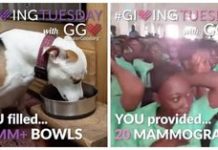Patients with large B cell lymphoma (LBCL) who are refractory or who relapse early after first-line chemoimmunotherapy have a very limited cure rate after standard chemoimmunotherapy. A phase II ALYCANTE study is the first to assess the efficacy and safety of axicabtagene ciloleucel as a second-line therapy in patients with high-risk relapsed or refractory LBCL who are deemed ineligible for high-dose chemotherapy or autologous stem cell transplantation (ASCT).
In this prospective, multicentre, open-label, phase II study, a single axicabtagene ciloleucel infusion was associated with a manageable safety profile and a high antitumour activity. The findings are published by Prof. Roch Houot of the Department of Hematology, University Hospital of Rennes in Rennes, France, and colleagues on 14 September 2023 in the Nature Medicine.
Until recently, the standard of care for second-line treatment consisted of salvage chemoimmunotherapy followed, if possible, by consolidation with high-dose chemotherapy and ASCT in fit and responding patients. However, patients who are primary refractory or who relapse early after a rituximab-containing first-line therapy, notably within a year from initial treatment, have a poor prognosis with standard salvage chemoimmunotherapy.
The recent advent of chimeric antigen receptor (CAR)-T cell therapy has led to an important paradigm shift in the management of the patients with high-risk relapsed or refractory LBCL. In patients with high-risk risk relapsed or refractory LBCL considered eligible for ASCT, axicabtagene ciloleucel, an autologous anti-CD19 CAR-T cell therapy, demonstrated superior efficacy over the standard of care as a second-line treatment in the ZUMA-7 study.
The authors explained that in clinical practice, about half of patients with relapsed or refractory LBCL are considered ineligible for high-dose chemotherapy or ASCT. This population has not been evaluated in the ZUMA-7study. Several factors may preclude patients from receiving high-dose chemotherapy or ASCT including advanced age, frailty and coexisting medical conditions. Furthermore, patients who have undergone a previous ASCT as first-line consolidation are usually considered ineligible for a second ASCT.
The prognosis of patients with relapsed or refractory LBCL who are ineligible for high-dose chemotherapy or ASCT is usually poor with standard salvage chemoimmunotherapy. Clinical trial data and real-world evidence have shown that CAR-T cell therapy is feasible in a subset of transplant-ineligible patients, notably in elderly and less-fit patients. In this context, a phase II ALYCANTE study was conducted to assess the efficacy and safety of a single axicabtagene ciloleucel infusion as a second-line treatment in patients with high-risk relapsed or refractory LBCL deemed ineligible for ASCT but eligible for CAR-T cell therapy.
ALYCANTE, an open-label, phase II study, evaluated axicabtagene ciloleucel as a second-line treatment in 62 patients with relapsed or refractory LBCL who were considered ineligible for ASCT. The primary endpoint was investigator-assessed complete metabolic response at 3 months from the axicabtagene ciloleucel infusion. Key secondary endpoints included progression-free survival (PFS), overall survival (OS), and safety.
The study met its primary endpoint with a complete metabolic response of 71.0% (95% confidence interval [CI] 58.1–81.8%) at 3 months. With a median follow-up of 12.0 months (range, 2.1–17.9), median PFS was 11.8 months (95% CI 8.4–not reached) and OS was not reached.
The efficacy of axicabtagene ciloleucel was maintained across key subgroups, including patients with high-risk features, such as age ≥70 years, Haematopoietic Cell Transplantation-specific Comorbidity Index score ≥3, International Prognostic Index score ≥ 3 and primary refractory disease. The only exception was in patients with a high total metabolic tumour volume (TMTV) at inclusion, as the study investigators observed a reduced complete metabolic response at 3 months among these patients. This observation is consistent with other studies evaluating CAR-T cell therapy for relapsed or refractory LBCL, in which a high TMTV was associated with an increased risk of early relapse or progression.
There was no unexpected toxicity. Grade 3–4 cytokine release syndrome and neurologic events occurred in 8.1% and 14.5% of patients, respectively.
Another CD19-directed CAR-T cell product, lisocabtagene maraleucel, has also been evaluated as a second-line treatment in the open-label, phase II PILOT study performed in 61 patients with relapsed or refractory LBCL who are ineligible for ASCT. PILOT results are overall consistent with those of ALYCANTE. Despite the comparable study designs and sample sizes of ALYCANTE and PILOT, cross-trial comparisons should be approached with caution, particularly as eligibility criteria differed between these two studies.
The authors commented that although axicabtagene ciloleucel compares favourably to second-line chemoimmunotherapy based on historical controls, it remains to be compared to more recent regimens. They concluded that the results from their study support axicabtagene ciloleucel as a second-line treatment in patients with relapsed or refractory LBCL who are deemed ineligible for high-dose chemotherapy or ASCT.
This study was funded by Kite, a Gilead company.
Reference
Houot R, Bachy E, Cartron G, et al. Axicabtagene ciloleucel in large B cell lymphoma ineligible for autologous stem cell transplantation: the phase 2 ALYCANTE trial. Nature Medicine; Published online 14 September 2023. DOI: https://doi.org/10.1038/s41591-023-02572-5







